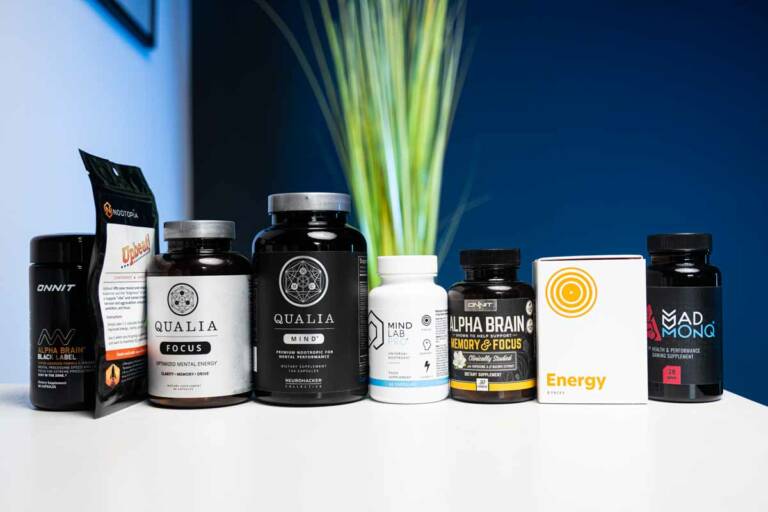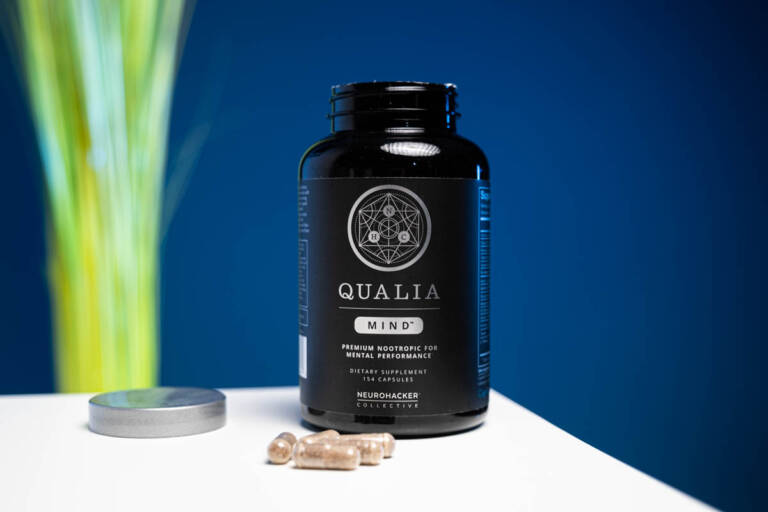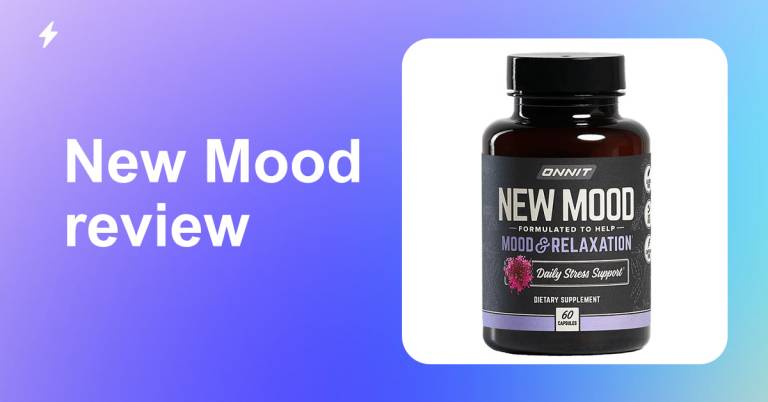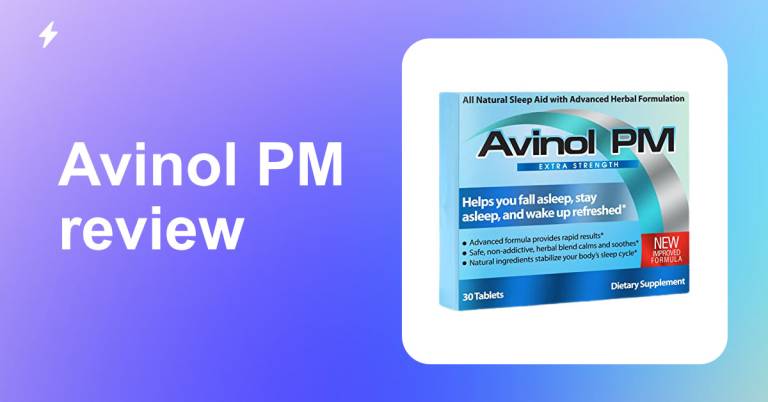What is Somnapure?
Somnapure natural sleep aid is among the many sleep aids that you can get over the counter. It relies on a mix of natural herbal ingredients to promote relaxing sleep and help users wake up feeling refreshed.
Manufacturers claim their product helps in the following ways:
- Helps users fall asleep faster
- Lets users stay asleep longer
- Users wake up feeling more refreshed
The company manufacturing Somnapure goes by the name of Peak Life with Somnapure being their main product from among a few others. Peak Life doesn’t have as large a presence as some other giants of the supplement industry and Somnapure is the only sleep-related product they manufacture, with another version called Somnapure Clinical Strength.
Their other products include Puritea, a dietary supplement to increase mental and physical energy, and Focus Well, another supplement for focus and memory support. So, being the only sleep aid from the manufacturer, does Somnapure deliver as promised?
Let’s find out by taking a look at its ingredients first.
Somnapure Ingredients
On a positive note, Somnapure contains some potent ingredients with a bit of scientific research to back their effectiveness.
But its main ingredient is valerian root which, unfortunately, leaves a lot to be desired and doesn’t work as advertised.
Other promising ingredients like lemon balm boast some credible data for sleeping benefits and then there is melatonin which otherwise goes by the name of the sleep hormone.
In supplemental form, melatonin has become a regular ingredient in many quality sleep aids and works in sync with other ingredients to promote better sleep.
Valerian Root
Valerian root is a common ingredient in sleep aids and Somnapure uses 500 mg of it in every serving. This seems like an adequate dosage given that research done on valerian root suggests taking between 400-600mg for sleep-related benefits. [1]
The most common uses of this herb historically have been for its sedative and hypnotic properties to fall asleep faster and for anxiolytic effects.
Of the two, there is more evidence for valerian’s efficacy for managing insomnia, primarily by reducing sleep latency. As an anxiolytic, valerian has often been used with other herbs but there is very little support to corroborate its effectiveness.
While valerian may be claimed as an effective sleep aid by herbalists, our concern is that studies on this herb have always used this ingredient with other more potent sleep aids, so it’s hard to establish its potency on its own.
Lemon Balm Extract
Another common ingredient for promoting a good night’s sleep, lemon balm extract is also often found in sleep supplements. But unlike many others, it does have scientific data of sorts to back up its sleep-enhancing claims. [2]
Oftentimes, it is used in combination with valerian root to help you get better sleep. As such, it remains undecided whether valerian alone or lemon balm alone is responsible for the effect. Or whether the combination works better.
For sleep-related purposes, it is recommended to get between 300-500 mg for a suitable, low-end starter dose. In this sense, Somnapure appears to meet the recommended dosage for lemon balm, (it yields 300 mg/serving) especially considering that it combines it with valerian as well.
L-theanine
An excellent sleep aid on its own, L-theanine is an amino acid which can cross the blood-brain barrier. It is largely sourced from green and black teas as well as certain types of mushrooms.
The reason why L-theanine is used in sleep supplements is because it can affect the level of certain brain chemicals. Research shows this amino acid to regulate excitatory neurotransmitters which can help promote relaxation. [3]
It also plays a part in promoting GABA production that aids in settling the nervous system and increasing alpha brain waves which has the effect of calming and quietening the mind.
Dosed at 200 mg, Somnapure does a decent job of including enough L-theanine to present sleep-enhancing effects.
Hops Extract
Hops are known for inducing physical relaxation, calming the mind, and to help you get a sounder sleep experience. This potency comes from hops’ ability to boost GABA levels in the brain.
Another sleep-promoting aspect is the hops’ potential to lower body temperature. A slight dip in body temperature is a natural occurrence as bedtime approaches so this mechanism syncs in with that process nicely. [4]
The body also tends to lose heat which helps you fall and stay asleep.
In the capacity of a sleep aid, hops are most effective when dosed at around 1.5 to 2 mg. In the case of Somnapure, manufacturers have included 120 mg of hops per serving. This makes the hops extract underdosed for the purpose of inducing sleep.
Chamomile Extract
Chamomile is widely associated with yielding calming effects, especially when consumed as a tea. Whether you’re tired, feeling stressed, or want to get a good night’s rest, herbalists will recommend a cup of chamomile tea to wind down before you go to bed.
Scientific research, on the other hand, is a bit more skeptical. Granted, studies show that an antioxidant called apigenin present in the plant has relaxing properties, there just isn’t enough evidence to conclude that chamomile can bring on some quality sleep.
At best, some studies indicate that chamomile may possibly be effective for helping people with chronic insomnia sleep somewhat better. However, the same does not apply to others who simply have a hard time sleeping but are not insomniacs. [5]
Somnapure uses a mere 50 mg of chamomile extract per serving which falls way short of the 270 mg as recommended by some clinical studies. That makes this otherwise possibly helpful ingredient severely underdosed.
That said, advocates of chamomile will recommend taking it as a tea instead for maximum effect. We also feel that the tea form is probably the best way to go with chamomile instead of relying on supplements that do not or cannot accommodate an adequate dose in their formulas.
Passionflower Extract
Another ingredient that boasts insufficient credentials in Somnapure is passionflower extract. Although found extensively in sleep supplements, it has been challenging to find any viable studies on its sleep-enhancing effects alone.
Like many other similar herbal ingredients, it seems to show potential when used in combination with other superior sleep aids. But the question remains how effective it really is on its own or whether it can do anything at all for improving sleep.
Using it with scientifically backed ingredients may show promise but does not validate its potential in isolation.
Herbalists do, however, credit its calming properties to an enhanced production of GABA to get a sound sleep experience. Researchers, on the other hand, have concerns over whether GABA even reaches the brain effectively enough to produce any of those results.
And if we were to look at the recommended dosage for passionflower, different sources would tell us to take the extract ranging anywhere from 260 mg to 1000 mg to reduce anxiety.
This, once again, is an overwhelmingly larger dose than the 50 mg you get from Somnapure’s single serving.
It also leaves us wondering as to why Somnapure manufacturers even bothered with including passionflower in their product.
With no scientific backing and an underdosed serving, passionflower’s inclusion can be considered negligible at best.
Melatonin
After the disappointing inclusion of passionflower in the ingredient list, Somnapure attempts a bit of redemption by including melatonin in their product.
Melatonin has long been a favorite sleep aid and for good reason too. It is naturally produced by the body and helps regulate the sleep-wake cycle. [6]
Melatonin production increases at sundown which signals the body to prepare for sleep. With daylight breaking through, this production decreases preparing the body to wake up refreshed.
Adding to its advantage, melatonin can cross the blood-brain barrier where it starts to do its work by bringing on drowsiness and shortening the time it takes to fall asleep. It also validates the company’s claim of a non-habit-forming supplement as melatonin is non-addictive.
People with low melatonin levels often have trouble sleeping and can benefit by using it in supplemental form.
Luckily, you only need to take 2 mg of melatonin for sleep-inducing effects and Somnapure delivers a generous 3 mg per serving. This is enough to experience its effects without the need to mix it up with other sleep aids.
Does Somnapure Work?
To say if Somnapure works effectively or not is rather relative. It seems more of a hit-or-miss kind of product where it may work for some but not for everyone.
We believe the reason for this is that while the overall formula for Somnapure is good, some of the ingredients are seriously underdosed. Also, not every ingredient listed can brag about scientific validation for its claims.
This makes Somnapure neither terrible nor great, but just a very standard sleep supplement with nothing special to offer.
We also like that Somnapure does not create dependency due to its non-habit-forming composition and doesn't leave you feeling a yearning for more.
To sum it up, we classify Somnapure as your run-of-the-mill sleep supplement. It has some good ingredients and some ineffective ones which make us want to look at other top-of-the-line supplements instead.
Somnapure Side Effects
The manufacturers of Somnapure have played it safe by using components that do not present any severe side effects.
The listed ingredients have in some way or the other been tested for safety and none present any serious threats unless overdosed unrealistically.
The most common customer complaints that have surfaced after use relate to digestive discomfort but abate once your system gets used to them.
In other cases, there have been reports of jitters and wakefulness by users while some have had a really rough experience with migraines and rapid heartbeat resulting from using this product.
We caution anyone who wants to use Somnapure to first consult with a doctor and use it under medical advice. For others who simply want to try a new supplement out of curiosity, we do not recommend Somnapure since there are far superior sleep aids out there.
Somnapure Dosage
This natural sleep aid claims to start working in about 45 minutes, so it’s recommended to take it between 30-60 minutes before bedtime.
One bottle contains 60 tablets and 2 tablets make up one serving, so the purchase of one bottle will last you one month.
Somnapure Customer Reviews
Somnapure enjoys a mixed bag of reviews. Those who are fans of the product report it working as advertised while others find it quite average.
Somnapure Clinical Strength, however, only has a single active ingredient, Diphenhydramine, with no melatonin or other botanicals included. This is something to keep in mind if you opt for the clinical strength formula.
Verdict
Our Somnapure review tells us that this is a very average sleep aid that may or may not work for you. If you’re looking for a sure-shot way to sleep better, we suggest you take a look at finer high-quality formulas with top-notch ingredients.
Our recommendation is to stay away from Somnapure and find better alternatives.






